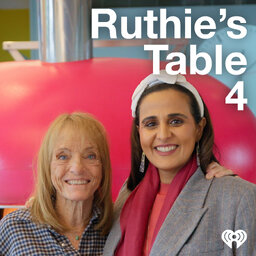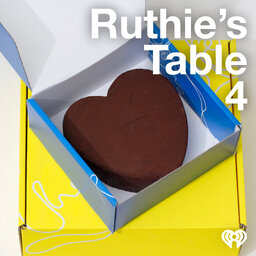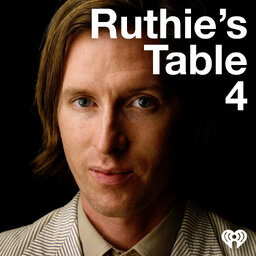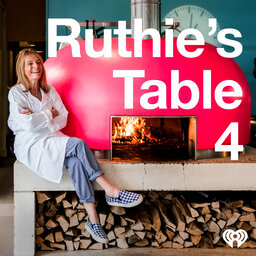A year ago, I used every bit of access and influence to get tickets to Cabaret for one reason only - to see Eddie Redmayne the star of the show. And last week, conquering my enormous fear of being afraid, I watched him in the Good Nurse and was unnerved how beautifully he made a mass murderer not only empathetic, but almost loveable. All of us in The River Café know Eddie as an enthusiastic eater.
On this episode we discuss his life through food but not before we put him to work in the kitchen, fulfilling his life’s dream and making pizzas with our chef, Jessica Filbey.
For more than 30 years The River Cafe in London, has been the home-from-home of artists, architects, designers, actors, collectors, writers, activists, and politicians. Michael Caine, Glenn Close, JJ Abrams, Steve McQueen, Victoria and David Beckham, and Lily Allen, are just some of the people who love to call The River Cafe home.
On Ruthie’s Table 4, Rogers sits down with her customers—who have become friends—to talk about food memories. Table 4 explores how food impacts every aspect of our lives. “Foods is politics, food is cultural, food is how you express love, food is about your heritage, it defines who you and who you want to be,” says Rogers.
Each week, Rogers invites her guest to reminisce about family suppers and first dates, what they cook, how they eat when performing, the restaurants they choose, and what food they seek when they need comfort. And to punctuate each episode of Table 4, guests such as Ralph Fiennes, Emily Blunt and Alfonso Cuarón, read their favourite recipe from one of the best-selling River Cafe cookbooks.
Table 4 itself, is situated near The River Cafe’s open kitchen, close to the bright pink wood-fired oven and next to the glossy yellow pass, where Ruthie oversees the restaurant. You are invited to take a seat at this intimate table and join the conversation.
For more information, recipes, and ingredients, go to https://shoptherivercafe.co.uk/
Instagram: www.instagram.com/ruthiestable4
Facebook: https://en-gb.facebook.com/therivercafelondon/
For more podcasts from iHeartRadio, visit the iheartradio app, apple podcasts, or wherever you listen to your favourite shows.
In 1 playlist(s)
Ruthie's Table 4
Welcome to Ruthie's Table 4 hosted by Ruthie Rogers, co-founder and chef of The River Cafe in London…Social links
Follow podcast
Recent clips

Her Excellency Sheikha Al-Mayassa bint Hamad bin Khalifa Al Thani
28:28

Bonus: Valentine's Day At The River Cafe
12:17

Wes Anderson At Gagosian, Paris
18:08
 Ruthie's Table 4
Ruthie's Table 4